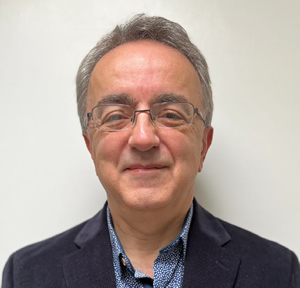

Prof. Dr. Nader F. Mir
Dr. Nader F. Mir is currently a professor, and served as the associate chair, at the Department of Electrical Engineering, Charles W. Davidson College of Engineering, San Jose State University, California. He also served as the academic director of the university’s special graduate programs offered at several leading San Francisco Silicon Valley companies such as KLA-Tencor and Lam Research.
Nader has been a well-known expert in patent and technology litigation cases in the areas of communications systems and computer networks and worked as a technical consultant for leading companies such as Cisco, Netflix, Sony, and Google.
Dr. Mir is internationally well known for his research and scholarly work and has been invited to speak at several major international conferences. He has published more than 150 refereed technical journal and conference articles, all in the field of communications systems and computer networks. He is also the recipient of several leading conferences awards such as a Outstanding Tutorial Award, and the Best Paper Award.
Nader has published a successful textbook through Pearson Prentice Hall Publisher which is now a standard worldwide adopted university textbook. The book is entitled “Computer and Communication Networks,” which has been translated into several languages. The 1st edition of this textbook was published in 2006, its 2nd edition was published in 2015, and its 3rd edition is expected to be released in 2026.
He was granted a successful U.S. Patent (Patent 7,012,895B1), claiming an invention related to hardware/protocol for use in high-speed computer communication networks.
Dr. Mir has received numerous prestigious national and university awards and research grants. He is the recipient of a university teaching award, a university research excellence award, the university’s outstanding professor award nomination, the IEEE most effective professor award, Golden-Key outstanding faculty member award, Davidson College of Engineering Faculty Award for Excellence in Scholarship, Faculty Service Recognition Award, Book Author Award, Nancy Wheeler Nelson Faculty Excellence Award, Faculty Service Recognition Award, and several Research Excellence (Development Grant) Award.
Nader is currently the technical editor of IEEE Communications Standards Magazine. He has held several other editorial positions such as editor of Journal of Computing and Information Technology, guest editor for computer networking at CIT Journal, IEEE Communications Magazine for 15 years (2005-2020) and editorial board member of the International Journal of Internet Technology and Secured Transactions. He is a senior member of the IEEE and has also served as a member of technical program committee (TPC), a member of steering committee, and a panelist for several major and IEEE communications and networking conferences such as WCNC, GLOBECOM, IMERGING, and ICC and ICCCN conferences.
The areas of his research are Computer Networks/Protocols, TCP/IP, Virtualization, Artificial Intelligence (AI) in Networking, Cloud Data Centers, Network Security, Internet Applications, Web, VoIP, Video Streaming, Multimedia Signaling/Networking, CDNs, Networking Devices, Switches, Routers, Media Gateways, Virtual Switches, Signaling in Wireless Mobile and Telecommunication Networks, IoT, and Wireless Sensor Networks.
Prior to his current position, he was an associate professor at his current school, and an assistant professor at the University of Kentucky in Lexington. From 1994 to 1996, he was a research scientist at the Advanced Telecommunications Institute, Stevens Institute of Technology in New Jersey, working on the design of advanced communication systems and high-speed computer networks. From 1990 to 1994, he was with the Computer and Communications Research Center at Washington University in St. Louis and worked as a research assistant on the design and analysis of a high-speed switching systems project. From 1985 to 1988, he was with Telecommunication Research & Development Center (TRDC), and as a telecommunications system research and development engineer, participated in the design of a high-speed digital telephone Private Branch Exchange (PBX), and received the best “design/idea” award.
He received the M.Sc. and Ph.D. degrees both in electrical engineering from Washington University in St. Louis, MO, in 1990 and 1995 respectively.